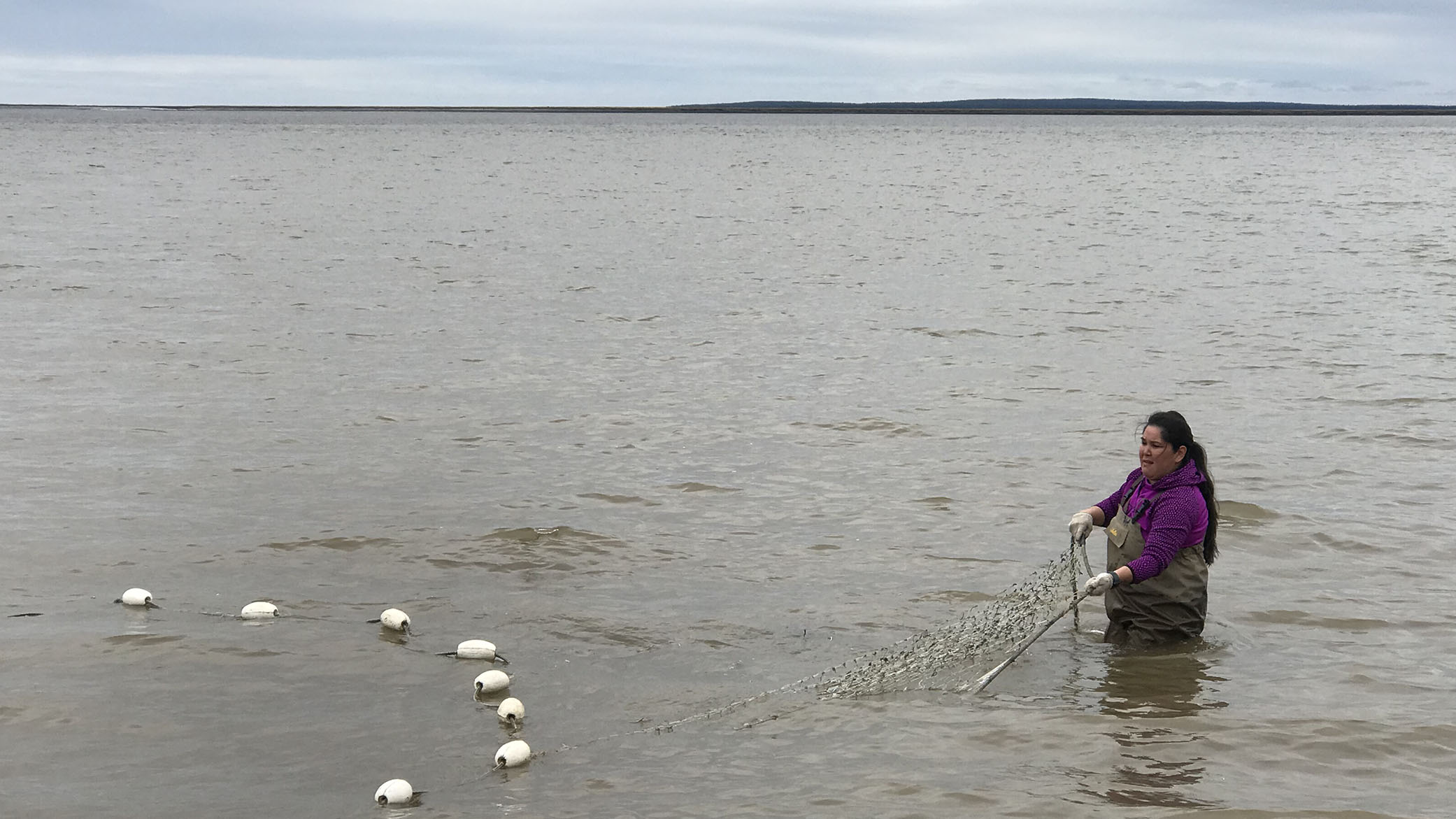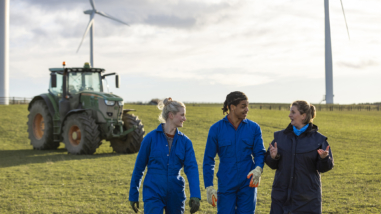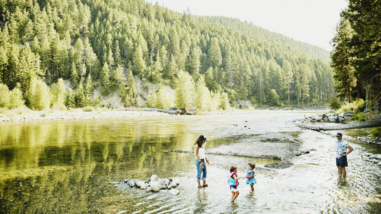New fund builds the communications capacity of conservation organizations

The Hewlett Foundation’s new, five-year Western Conservation strategy affirms that conservation outcomes will be enduring when they reflect the values of engaged communities. This work requires grantees have sufficient communications and outreach capacity and savvy to build diverse coalitions, including with rural and indigenous communities, and pursue community-driven, collaborative conservation solutions.
To this end and recognizing that many grantee organizations have flagged for us that they’ve long operated with shoestring communications budgets, the Hewlett Foundation established a five-year $1.25-million “Western Conservation Communications Hub” to support communications activities of Western Conservation program grantees and share best practices. The Hub is managed by the nonprofit Resources Legacy Fund (RLF), which will award funding for communications activities via an annual open request for proposals from active program grantees.
This year, based on guidance from a six-member Advisory Board of communications experts, RLF chose to support proposals that fell into three categories: 1) innovative digital projects, 2) equity-centered projects that strengthened coalitions and empowered people to tell their own stories, and 3) surge funding for defensive fights in key geographies. Nine Western Conservation Communications Hub grants were awarded in April 2019 to:
Bears Ears Inter-Tribal Coalition
$5,500 – for a paperless initiative to facilitate communications and coordination among tribes
Colorado Plateau Foundation
$20,000 – to hire a writer and photographer to visit Native communities and share personal stories to bring awareness to Plateau issues, and support Native peoples
Conservation Lands Foundation
$5,000 – to create a video/social media toolkit for partner organizations to share local stories
Hispanic Access Foundation
$16,000 – for ArcGIS mapping to match volunteers, interns, and faith leaders with public communication opportunities
Latino Outdoors
$17,000 – for website redesign that includes advocacy information and storytelling about the experiences of non-traditional nature lovers and outdoor enthusiasts
Outdoor Afro
$10,000 – to support development of an app to engage the public in outdoor experiences
United Tribes of Bristol Bay
$75,000 – for the design and development of advertising and communications materials about Bristol Bay
Western Landowner Alliance
$6,500 – to support communications with landowners and the broader public about advancing “Conservation without Conflict” with wildlife
Wild Salmon Center
$45,000 – for the design and development of new infographics about Bristol Bay
Congrats to all! We are pleased to have RLF managing this new communications-focused fund, and grateful that some of the sharpest minds generously gave their time and diverse expertise (broadcast media; digital strategy; Latinx, sportsmen and indigenous community engagement; print, video, and podcast development, etc.) to building the capacity of our grantees, and the conservation movement. We invite you to meet the impressive members of the 2019 Western Conservation Communications Hub Advisory Board:
Alastair Lee Bitsóí, MPH
Alastair is Diné from Naschitti, Navajo Nation, New Mexico. He serves as Communications Director for Utah Diné Bikéyah, with an emphasis on elevating the Native American voice and perspective in public lands discussions and empowering others to effectively and accurately communicate with and about Native communities. A skilled journalist, Alastair wrote for the Navajo Times, freelances for that publication and others, and has contributed to two anthologies about Bears Ears. Previously, he was a health communications specialist with Kauffman and Associates, Inc. in Washington, D.C.
Liz Judge
Liz Judge is the Environment Communications Officer at the William and Flora Hewlett Foundation, helping grantees and partners develop collaborative communications efforts, researching and sharing best practices in strategic communications, and working to build the field of knowledge and talent in strategic environmental communications. Previously, she served as director of advocacy communications at Earthjustice and as communications manager of the Aspen Institute’s energy and environment program, its environment forum, and project manager of its intensive two-year fellowship program for environmental leaders.
Katie McKalip
An enthusiastic public lands hunter, Katie is Communications Director for Hewlett grantee Backcountry Hunters and Anglers—the fastest-growing sportsmen’s group in the nation, where she drives innovative online and offline communications strategies from the organization’s headquarters in Montana. She is also an active member of the boards of the Outdoor Writers Association of America and Hellgate Hunters & Anglers, a Missoula, Montana, rod and gun club. Previously, she led media outreach for the Theodore Roosevelt Conservation Partnership.
Matt Nelson
Matt is the Colombian-born, Midwestern-raised Executive Director of Presente.org – the nation’s largest online Latinx organizing group, which advances social justice with technology, media and culture change. A seasoned campaign strategist, Matt has won dozens of local and national campaigns and trained thousands of activists as a skilled community organizer. His unmatched expertise in digital strategy will inform a forthcoming book he is writing with his team about the power of organizing in Latinx communities.
Nancy Vogel
As director of communications at RLF, Nancy is responsible for developing and implementing RLF’s communications strategies as well as special projects, including the Western Communications Hub. Previously, she served as Deputy Secretary for Communications at the California Natural Resources Agency and as Assistant Director, Public Affairs, for the California Department of Water Resources. She reported on natural resources issues as a journalist for the Los Angeles Times and The Sacramento Bee.
Aaron Weiss
A former broadcast news journalist, producer, executive producer and news director, Aaron serves as Deputy Director of the Denver-based Center for Western Priorities, a project of the Resources Legacy Fund. The Center advances public discussion and debate about conservation issues online, in the media, and throughout western communities. Aaron hosts the organization’s Go West, Young Podcast, oversees the Center’s research and communications efforts, and is quoted frequently in national and regional press.
We encourage all active grantees of Hewlett’s Western Conservation program to consider submitting a proposal next year to RLF for potential funding from the Western Conservation Communications Hub. The program lasts five years, and funding priorities and strategies will shift based on need and opportunity.



